What Baby Food to Start With First
We all go through the same concerns when it comes to our precious angels, one being: what baby food to start with first. Starting your baby on solids can be an exciting and frightening time. Where do you start? What do you choose? What’s the best option for your baby? All parents go through these questions and concerns, but not to worry, we have created a what, when, and how guide to give you all the information you need to make this experience a relaxed one.
What Age Should We Start At:
According to the American Academy of Pediatrics, you should start your child on solid foods around 4 to 6 months. Although this is true, the answer really depends on when your baby is ready. There is no defined answer to this, as every child is different in their own way, but here are some signs that your baby is ready for some solids:
- Your baby sits up on their own
- He/She can hold their head upright
- Your child has lost their tongue thrust reflex. According to Parenting.Com “The tongue-thrust reflex is an important, built-in safety mechanism. It makes sure that all those foreign objects babies are so eager to pop into their mouth don’t get far enough inside to become a choking hazard. Instead, your little one’s tongue acts like a shovel, pushing everything out of its way. To try to spoon-feed a baby whose tongue is still thrusting is to fight a losing (and very messy) battle. That’s why most doctors suggest that you wait until this reflex goes away before starting him on solids”
- He/She still seems to be hungry after getting all their milk for the day. Babies around this age drink about 32oz of formula a day, or about 8-10 breast feedings.
- Child seems to be interested in the food you are eating.
- Your child can mouth their toys and hands to their mouth.
The important thing to remember is that there is no need to rush into this important time. You shouldn’t start before your child is 4 months. Your child will be around the age of 5-6 months when they are ready.
Check out this video on 5 signs your baby is ready for solid food:
Should Your Baby Still Continue With Milk?
The simple answer to this is yes. Babies still continue drinking formula or breast milk until about 1 years of age. At one your child will switch to regular whole milk. The reason for keeping milk into your childs feeding schedule is that it provides great nutrition for your child along with a comfort for them.
Every child will be different on how much milk they will want and need when they start solids, but to start you can give your baby a bottle first thing in the morning, before or after their meals, and at bedtime. You will have to play around and see what works best for your baby. Some babies prefer milk over food and some prefer food over milk. if your child tend to prefer food over milk, then feed the bottle first then food, however if your child is the opposite and tends to drink their milk more than food, then start with the food and bottle after.
Your child will still be drinking most of their calories, aka milk, until they are about 7 to 10 months old. Solids in the beginning are more of introducing textures and tastes, as well as getting your child used to eating. On average up to 9 months of age you should still feed your baby 20-28 oz of formula or breast feed every 3 to 4 hours, and 9-12 months it will be 16-24 oz of formula or breastfeed every 4 to 5 hours.
What Baby Food to Start With First?
Now here is the info you have been waiting for, what baby food to start off with first. Here are the first foods you child should eat in order, the benefits, and links to buy the foods.
Diagram Via Healthychildren.org
Baby Food to Start With First:
Single Grain Cereals: 4-6 Months
Baby cereal is one of the first baby food you should start your child off with. Single Grain cereals are fortified with iron which is important for your baby and that is why they are a great food to start off with.
Why Iron is important for your child: The level of iron that is stored up while in utero drops after birth, and a baby reaches an all-time low at around 9 months. Iron is an essential nutrient that helps support baby’s brain development and learning ability. Babies are born with a supply of Iron, and they start using it right away. Breastmilk and infant formula both provide iron to your baby’s diet, but around the 6-month mark babies need iron from solid foods in their diet too. The American Academy of Pediatrics recommends feeding your baby Iron-fortified infant cereal or meat. And good news – two servings of infant cereal provide 90% of your baby’s daily iron needs!
How to make cereal: Making cereal is super easy! All you have to do combine one teaspoon of single-grain cereal with four to five teaspoons of breast milk or formula. Once your baby is used to swallowing runny cereal, thicken it by adding more cereal. So the consistency will start off as runny and gradually get thicker as your child gets used to eating. Also, as your child gets older you can add flavors such as fruit or applesauce into the cereal to add a little more to it.
Here are the Cereals to start with: Click on Pictures to purchase
Click Here for more options on rice cereal
Baby Food to Start With First:
Pureed Vegtables, Fruits, and Meats: 4-8 Months
Once you start with the cereal and your child is eating good and you are comfortable, you can then move on to veggies, fruits, and meats. For a long time we were told that you should always start your child on veggies before fruit, because it can cause a lifelong preference for sweets and that your child will refuse the vegetables if the fruits are introduced first. New research has shown that this is actually not true, and that you can start with either first, the choice is yours.
“Though many pediatricians will recommend starting vegetables before fruits, there is no evidence that your baby will develop a dislike for vegetables if fruit is given first. Babies are born with a preference for sweets, and the order of introducing foods does not change this. ” American Academy of Pediatrics
Vegetables to Start With: Pureed
– Carrots –
Benefits:
Carrots provide dietary fiber, vitamin C, calcium and iron. Carrots are extremely high in vitamin A, which promotes healthy eyesight, healthy skin, growth and resistance to infection. Because carrots are also a good source of the antioxidant beta carotene, which the body converts into vitamin A, these benefits are further amplified. Via Livestrong.com
Taste & Texture:
Carrots have 3 g of sugars in every half-cup of carrots, because of this they are one of the sweetest of all vegetables. This makes carrots a good choice when you are introducing solid foods to your infant because babies have a natural preference for sweets. Another benefit is the texture of well-cooked carrots, which are easy to puree, mash or chop into a consistency that your baby can handle. Via Livestrong.com
Preparation:
Carrots prepared for a 6- to 8-month-old child will generally need to be mashed or pureed, if necessary with the addition of a little breast milk or water. Babies age 8 to 10 months can eat carrots that have been well-cooked and cut into small pieces. Do not give infants chopped raw carrots because they present a choking hazard. Always peel the carrots and consider steaming rather than boiling them to help retain their nutrients. Via Livestrong.com
– Sweet Potatoes –
Benefits:
There are 5 main benefits of sweet potatoes for your child according to Beingtheparent.com listed below:
- High level of beta-carotene and vitamin A: Sweet potatoes are one of nature’s highest sources of beta-carotene. Beta-carotene helps the body to produce vitamin A. More than 100% of daily recommended intake of vitamin A is present in sweet potatoes. Vitamin A is important for healthy eyes
- Resolves constipation: When the baby is introduced to solid foods, there are chances of developing constipation as the digestive system of the baby is not fully developed. Including sweet potatoes in the baby’s diet will help to keep constipation at bay due to its fiber content that pacifies the bowel movements
- Boosts immunity: One sweet potato has about half of the daily recommended Vitamin C. Vitamin C has antioxidant properties and can also be helpful in boosting the body’s defense system. Babies are vulnerable to common infections like the common cold. Including a sweet potato in your baby’s diet will strengthen the immune system of the baby as it is the best source of powerful disease-fighting antioxidants like vitamin A, vitamin C, and Vitamin E
- Rich in vitamins and minerals: Sweet potato also is a decent source of other vitamins and minerals. It has a good amount of vitamin D that helps in building strong bones and teeth. Vitamin D also beneficial for a healthy heart. All the important Vitamins from B1 to B6 and also B9 is present in sweet potato and this helps with the development different organs and hence will help your baby to achieve the milestones right on time. It is a good source of minerals that assures healthy metabolism. Iron content helps to prevent anemia in babies
- High on calorie: Baby’s ought to gain weight fast. Giving the baby sweet potato as solid food will help to gain weight fast as they are high in calories. They also release energy slowly making it more beneficial for babies
Taste & Texture:
Sweet potatoes are super sweet and can mash up very easy to give a texture like cereal to your child. This is why it is recommended as one of the first vegetables to give your child.
Preparation:
Sweet potatoes can be made in several ways. You can boil, bake, steam, microwave, or grill them. You need to be sure to remove the skin after or before cooking. The skin does hold a lot of fiber that can be hard for your child to digest. Once the sweet potato is cooked you can begin to mash or puree it. You might need to add some water, formula, or breast milk to help mash and soften the potato to a puree consistency.
– Butternut Squash –
Benefits:
Butternut squash can be easily digested and rarely causes allergies. It also provides an excellent source of beta-carotene.
Taste & Texture:
Butternut squash, like sweet potatoes, and sweet and soft which make them a good first food to start with.
Preparation:
Bake, boil, or microwave the squash, the mash or blend it to the consistency you like. Add water or formula, breast milk if needed.
– Broccoli –
(More towards 8-10 months age)
Benefits:
Broccoli is a true Superfood, as it is a great source of vitamin C and also contains beta-carotene, folic acid, iron, potassium, and anticancer phytonutrients.
Taste & Texture:
Broccoli may be a hard food texture and taste wise to get your child to eat. Some kids love it while others can’t stand it. If you are having a problem getting your child to eat the broccoli try mixing it in with one of the sweet tasting vegetables like butternut squash or sweet potato.
Preparation:
Broccoli is best steamed or microwaved, as boiling it in water halves its vitamin C content. once it is cooked you can mash or puree it adding water or breast/formula milk as needed.
Fruits To Start With: Pureed
– Apples –
Benefits:
“Apples have so many health benefits. Apples are very low in saturated fat, cholesterol and sodium. They are also a good source of dietary fiber and vitamin C. They are known to help protect the body against certain cancers, prevent heart disease, help control cholesterol levels, reduce asthma symptoms and reduce the risk of diabetes.Apples are also known to be somewhat of a natural laxative and can help to keep your baby regular.” Via Canigivemybaby.com
Preparation:
You can either bake, steam, or boil the apples and then mash them up with a food processor or blender.
– Bananas –
Benefits:
A banana has the perfect combination of being rich in potassium but low in sodium, making it a heart-healthy choice. It also has an abundance of vitamins including vitamin B6, vitamin C, and vitamin B2. Since bananas are filled with those healthy vitamins and nutrients, but low in cholesterol, saturated fat, and sodium, you can feel confident offering it to your baby. While bananas have a reputation for settling upset stomachs and diarrhea, eating too many bananas may lead to constipation, so be carful on how much banana are in your child’s diet. Via Verywellfamily.com
Preparation:
you can just mash up the banana to a mush consistency and feed it to your child. If you would like the banana to be more runny you can add water or formula/breast milk to help.
– Peaches –
Benefits:
Peaches are high in vitamin A, Vitamin C, and they also contain a lot of fiber. Peaches are known to have a diuretic affect and are somewhat of a natural laxative, and can help with constipation. Just like bananas, you will want to limit the amount of peaches since they have so much fiber.
Preparation:
You can steam or bake the peach, take the skin off, and then mash it up to the consistency you prefer. You can always add water or formula breast milk to make the consistency thinner. Via Wholesomebabyfood.com
– Avocado –
Benefits:
Avocados are often called one of nature’s perfect foods because they are said to contain everything a person needs to survive. Avocados are a wonderful source of “good fat” food for your baby’s brain and physical development. According California Avocados “Sodium- and cholesterol- free, avocados contain valuable nutrients including 8% of the recommended Daily Value (DV) for folate; 4% DV for fiber and potassium, 4% DV for vitamin E; and 2% DV for iron. A serving of avocado also contains 81 micrograms of the carotenoid lutein and 19 micrograms of beta-carotene. Per serving, avocados have 3.5 grams of unsaturated fats, which are known to be important for normal growth and development of the central nervous system and brain.” http://www.californiaavocado.com/nutrition
Preparation:
Find a ripe avocado and made it up! Simple and easy!
Meats to start with: Pureed
– Chicken –
Benefits:
Chicken is packed with protein and is a source of vitamin B6, this is important for your baby because it is used to help the body extract energy from food. It is also important that babies start regularly eating foods containing adequate amounts of protein to support their rapid growth. If your baby doesn’t like the taste of chicken on its own, mix it with his favorite fruit or vegetable. Via Parents.com
Preparation:
First cook the chicken. you can bake or grill. Then cut up the chicken into pieces and place the chunks in blender or food processor and puree until a powdery mix is formed. Slowly add water and puree further until a smooth consistency is created. And as much water as you need in order to have the consistency you like.
– Beef –
Benefits:
Red meat is good for your baby because it provides an easily absorbed form of iron. Iron is important for brain development and helps your babies red blood cells carry oxygen to cells throughout the body. Iron deficiency can cause learning and behavior problems and is one of the highest deficiencies in children, so it is important to make sure that your baby is consuming iron through meats and other foods.
Preparation:
Cook the meat throughout in the way you like. Puree the meat by adding water and a vegetable to help with the consistency (ex. beef and carrots)
want to know more about the best Superfoods you can feed your baby? Check out Superfoods for Babies: 6 Months and Older on Parents.Com
What if I Don’t Have Time to Make My Own Food?
Making your own baby food is not for everyone, and that is perfectly ok. You need to do what is right for you and your baby. If you don’t have the time or the patience to make your own, there are lots of remade pouches that you can purchase. make sure to start with the stage one products which are the single ingredient pouches. It is important to introduce one food at a time at first until your child gets used to it. Here are a few examples of pouches you can purchase. Click on the pictures to go to the site.
For More options on flavors Click Here
Baby Food to With First:
Single Ingredient Finger Foods: 6-8 Months
As your child gets comfortable with cereal and purees, you can start to introduce finger foods into the babies diets. Babies enjoy experimenting with self-feeding from an early age. Make sure that you don’t offer any hard, raw foods, such as apple slices or carrot sticks at this point. The fruits, veggies, and meats need to be soft enough to mash with gentle pressure between your thumb and forefinger. The shape matters too. Younger babies will be picking foods up with their whole palms, so a mound of mashed potatoes or a wedge of avocado will be easier to handle than smaller foods. Via Parents.com
Having your child start to pick up their food and feed themselves is an important part of development. It helps your child learn to become more independent, have faith int hair abilities, and it helps them practice their fine motor skills and hand eye coordination.
You can also start to introducing small cookies and cereals that dissolve super fast. Here are a few examples that you can click on the pictures to check them out.
Baby Food to Start With First:
Dairy: 8 months +
Around 8 months old, you should be able to offer plain whole milk yogurt and mild cheeses to your baby. Many pediatricians even suggest yogurt as a great first food as early as 6 months of age. Mix some yogurt with a favorite fruit puree for a breakfast offering. Via Wholesomebabyfood.com
Video Via HealthyChildren.Org
For more of a breakdown for what baby food to start with first based on your child’s age check out wholesomebabyfood.com
Should There be a Routine Schedule for Feeding?
As Soon as the interest in feeding is there, you should start a routine with your child. You should begin to feed your child breakfast, lunch, and dinner, even though they may not be hungry for each. Getting in the habit for you and your child will help the transition into food, but its important to note that you should never force your child to eat. If your child refuses the food, then meal time can be over. Take your child out of the chair and move on.
The goal in all of this is to have your child into a big kid routine by the time they turn one. Once your child turns one they eat all 3 meals, with 2 snack, and milk (whole after 1 years of age) can be used as a drink not as a meal.
How Much Food Should Your Baby Eat?
As Parents, we never want to feel like we are underfeeding our babies, which can in turn give us anxiety when introducing new foods such as solids. According to Wholesomebabyfood.com it is important to remember that ” Your baby will never starve himself or herself! ” Healthy babies will eat the right amount of foods that they need, “Resist the urge to offer “just one more bite” when baby indicates she’s finished. You do not want to accidentally override your baby’s developing ability to self-regulate his or her feeding by continuing to try and feed your baby. It is important to pay close attention to your baby’s cues as your baby’s feeding patterns will change daily and may be affected by the goings-on around him.”
Here is a little go to guide to help you gage about how much your baby should be eating once they start solids:
4-6 Months:
- Feed your baby his/her same amount of Breast Milk or formula
- 1-3 Tablespoons of food at 1 or 2 meals
6-8 Months:
- Breast milk and/or formula are still super important as your child is growing so keep with the oz
- babies can eat up to 8oz. a day of solids split up in 2-3 meals
8-10 Months:
- Many babies will be eating 3 “meals” per day at this stage; including a grain, fruit, veggie and a meat or protein source such as eggs.
- Continue with the breast milk and/or formula
- your child will be eating 3 meals a day at this point
- look for the cues your baby gives you. once again don’t force the food, your baby will eat exactly the right amount they should
10-12 Months:
- Many babies will be eating 3 “meals” per day at this stage; including a grain, fruit, veggie and a meat or protein source such as eggs.
- Breast Milk and/or formula
- 3 meals a day, until they are full
What Foods to Avoid Giving your Baby
while we have been outline what baby food to start off with and how to get the solids started, there are a few foods that you should not give your baby under the age of one. Here is the list:
Honey
Honey and foods that contain honey are off limits for the first year of your baby’s life. The reason for this is because honey may contain the spores of the bacteria Clostridium botulinum. Although harmless to adults, these spores can cause botulism in babies under 1 year old. This serious but rarely fatal illness can cause constipation, weakened sucking, poor appetite, lethargy and even potentially pneumonia and dehydration. So wait until after your baby’s first birthday to serve your little peanut honey.
Cows’ Milk
Babies under 1 year old should avoid cow’s milk, since it can be hard for infants to digest. Cow’s milk also doesn’t have all the nutrients, such as iron and vitamin E, that a baby needs to grow and develop during his or her first year. This is why breast or formula are the best milk sources. Most doctors, however, will okay whole milk yogurt, cottage cheese and hard cheese by 8 months or so. Once your baby is past the 1-year mark, whole milk will be ok in moderation.
Chocking Hazards
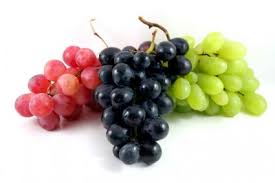
Once the molars come in around 12 months, you can add foods that require chewing, like firm-flesh veggies or fruits (raw apples grated or cut into very small pieces, for example), small slices of meat and poultry (cut across the grain) and seedless grapes (skinned and halved). Also avoid globs of peanut butter as that can in turn cause a chocking hazard as well. Hold off on common choking hazards like raw carrots, popcorn, nuts and whole hot dogs until your child is chewing well, even then, make sure they’re diced, cubed or very thinly sliced if possible
Fruit Juice
Fruit juice isn’t much better than sugar water, it contains calories but none of the fat, protein, calcium, zinc, vitamin D or fiber that babies need. It can also tend to drown tender appetites for breast milk or formula that should be the majority of a baby’s diet in the first year of life. Too much juice can also cause tooth decay, diarrhea and other chronic tummy troubles.
The American Academy of Pediatrics (AAP) now recommends that fruit juice not be given at all to babies younger than a year old. But even after their first birthday, avoid giving any juice at bedtime, and give it only from a cup and only in small amounts during the day (no more than 4 to 6 ounces total daily for children up to the age of 6). If you do choose to occasionally serve juice, choose tummy-friendly alternatives like white grape juice and dilute it at least half-and-half with water.
Refined Grains
As we all know, not all carbs are created equal, nutritionally speaking, complex carbs provide naturally-occurring nutrients that are stripped during the refining process (which turns whole grains white). Whole grains are also rich in fiber, which helps keep blood sugar steady. So it is best to keep refined grains such as white bread away. You can instead opt for 100 percent whole grain pasta, bread, cereal, rice and crackers at the supermarket. Even when you’re mixing up muffins or whisking up waffles at home, reach for the whole grain flour instead of the white. Starting the habit early will help your little one make smarter food choices later in life.
High Mercury Fish
Research shows that regularly feeding baby fish can boost IQ. Just avoid those with high levels of mercury. These fish can include, shark, swordfish, king mackerel, tilefish and fresh tuna, among others. Also steer clear of fish from contaminated waters. Instead, stick to the many other varieties that are safe, including haddock, hake, pollack, ocean perch, whitefish, wild salmon, tilapia, flounder, trout, sole, shrimp and scallops, to name some. Canned tuna also gets the thumbs up; just opt for canned chunk light tuna, which contains less mercury than albacore tuna, and limit to no more than 1 ounce per 12 pounds of baby’s weight.
Allergenic Foods
You may have heard that you should avoid feeding babies allergenic foods including peanuts, eggs, wheat, citrus fruits, tomatoes and strawberries during the first year. But now the AAP recommends introducing allergenic foods earlier, between 4 and 11 months, to in turn prevent food allergies. The new recommendation is a good thing, since they’re packed with healthy protein, folate and other essential nutrients. Just make sure to talk to your doctor first before serving them, especially if allergies run in your immediate family. Also be sure to introduce them one at a time at home where you can watch closely for a reaction. Also avoid whole nuts, since they can be a choking hazard before the age of 4. Instead, start off with smooth nut spreads and butters.
Unpasteurized Foods
Just like when you we’re pregnant with your little peanut, you are going to want to avoid foods that are unpasteurized. You should avoid unpasteurized juices, dairy, and cider. The reason for this is that they can contain dangerous bacteria that can cause life-threatening illness to your baby. Want to now more foods to avoid while pregnant? Click Here
Hopefully this guide on what baby food to start with first has helped you feel a little more easy about what to and what not to do. Remember every child is different, so there will be trial and error, but that is what makes this time so exciting! Now lets get to eating!

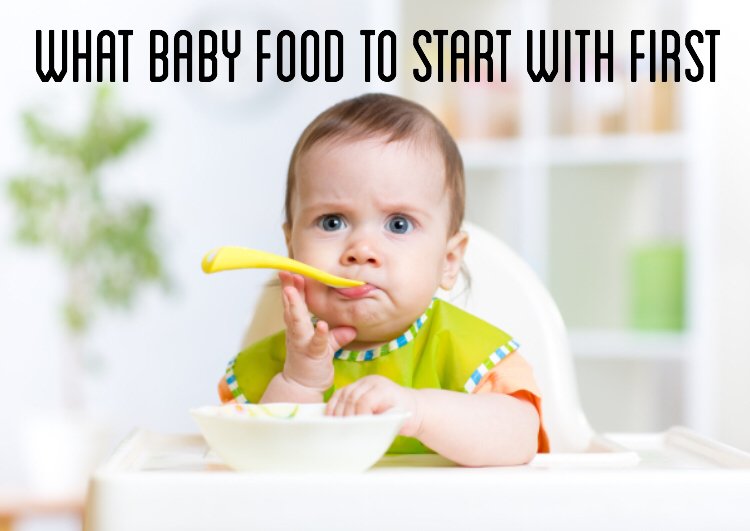



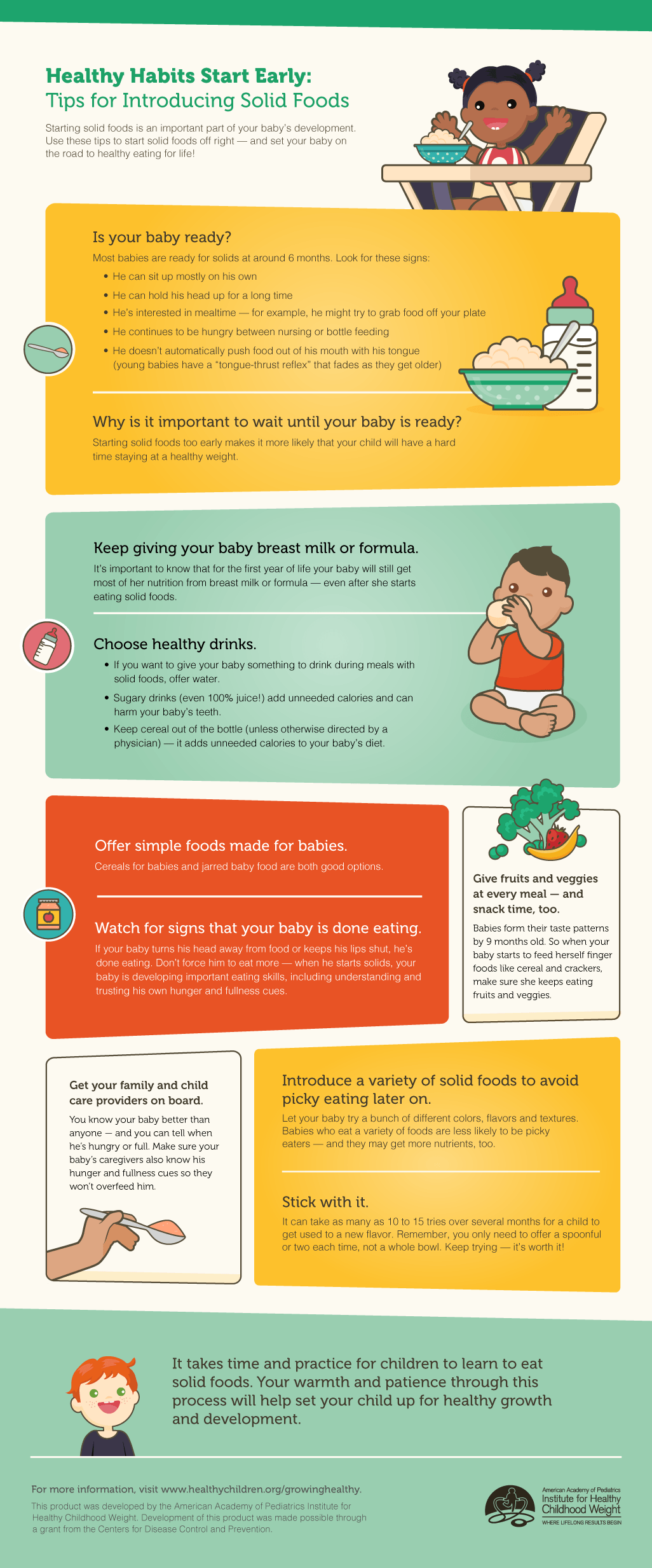
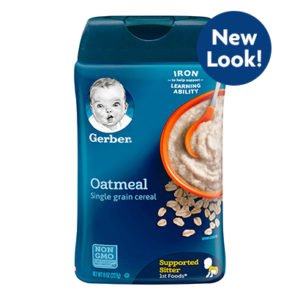
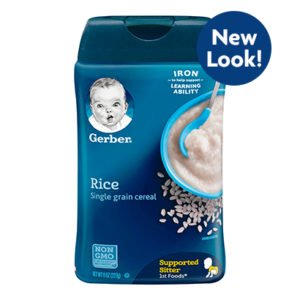
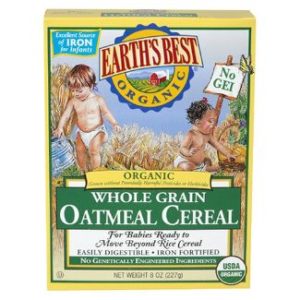
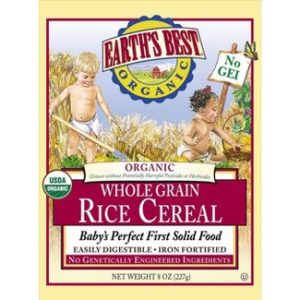
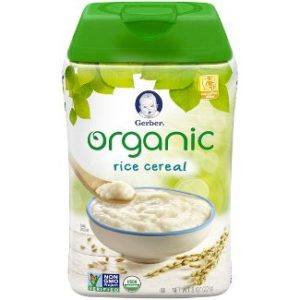
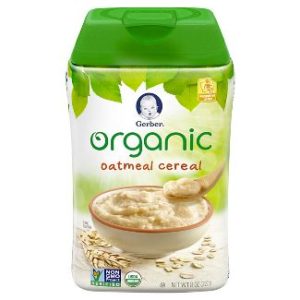








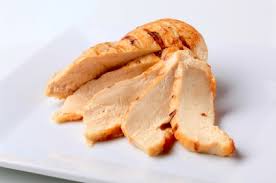
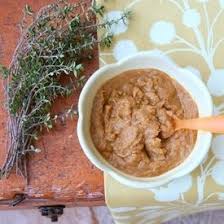
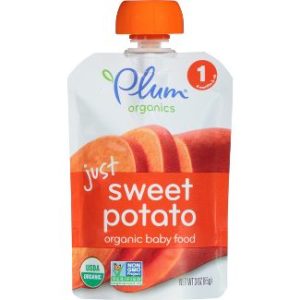
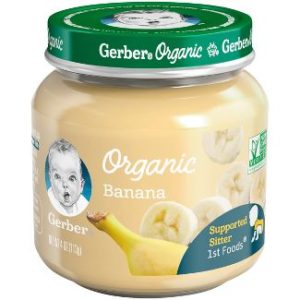
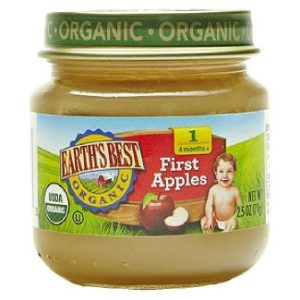
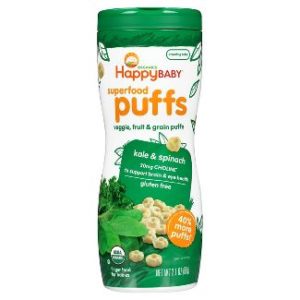
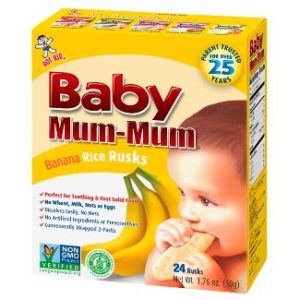
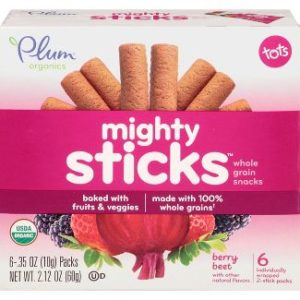
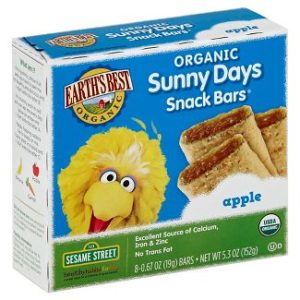
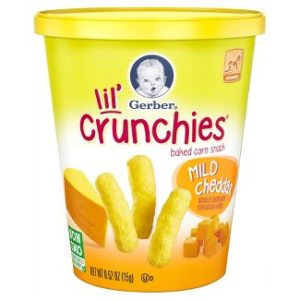
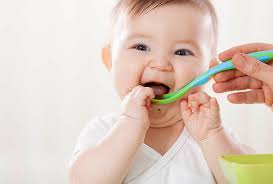
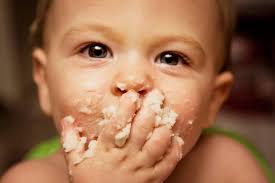
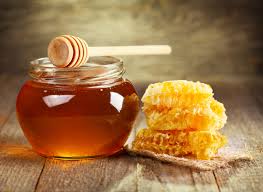
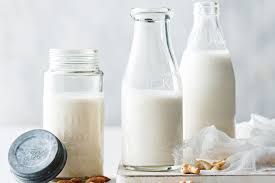
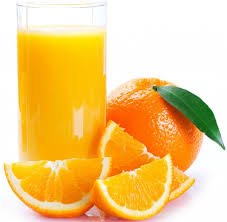
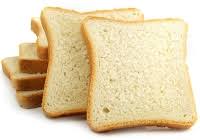

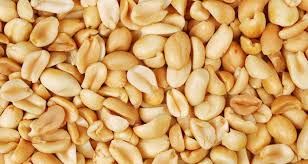
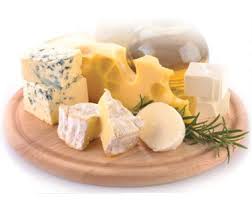
Recent Comments